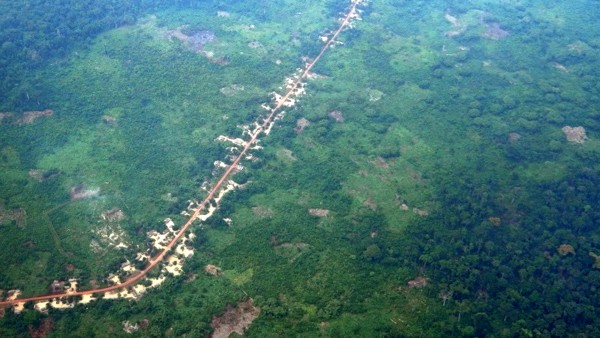GEOG Research Finds Congo Basin’s Old-growth Forests Vanishing at Alarming Rate
New research from the Department of Geographical Sciences finds that tropical forests in the Congo Basin are being cleared at an increasing pace, and if the trend continues, its native forests could vanish by the end of this century.
Using time-series satellite data, researchers analyzed the extent and immediate causes of forest loss in this region of sub-Saharan Africa, home to the world’s second-largest rainforest, from 2000 to 2014. Their results, published yesterday in Science Advances, demonstrate that 84 percent of forest disturbance in the region was due to small-scale, predominantly manual clearing for agriculture, and that the annual rate of this type of clearing almost doubled during the study period.
The findings are particularly alarming amid the United Nations’ predictions that the number of people living in the Congo Basin will increase fivefold by 2100, with the population in the Democratic Republic of the Congo alone reaching 400 million, said Alexandra Tyukavina, a postdoctoral associate and one of the lead authors of the study. “People in this region rely on primary forests to survive, but the forests won’t be able to keep pace with demand for long.”
This is the second in a series of detailed studies by the Department of Geographical Sciences on the causes of forest loss across the three major tropical forest regions. The first, published in 2017, focused on the Brazilian Legal Amazon. A future study will examine factors driving forest loss in Indonesia.
“Topical forests play a crucial role in climate regulation and provide critical ecosystem services,” said Professor Matthew Hanson, the study’s other lead author. “Our research seeks to assess and quantify the factors impacting forest loss across large regions in a methodologically consistent manner so we can figure out ways to slow or stop the process before it’s too late.”
Funding for the study was provided by the United States Agency for International Development, through its Central Africa Regional Program for the Environment, and the National Aeronautics and Space Administration.
Originally posted on Maryland Today on November 9, 2018
Author: Sara Gavin
Photo credit: Giuseppe Molinario
Published on Fri, 11/09/2018 - 11:34


